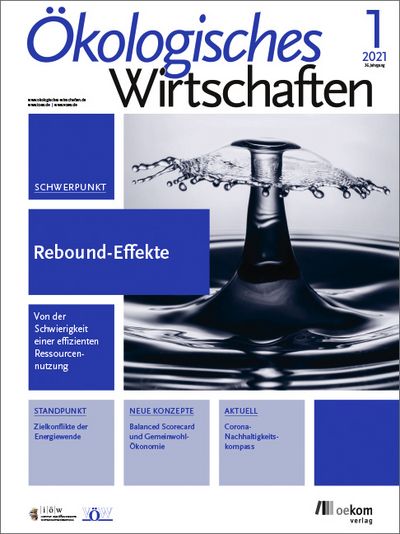Rebound effects and prosumers The role of the electricity consumption framework for photovoltaic generators
Rebound effects can occur not only with efficiency measures, but also with a switch to renewable energies. The question of whether this also leads to significant rebound effects is of great importance for the energy transition and climate protection policy. This is because without reducing consumption, the targets can only be achieved with significantly higher expansion rates of renewable energies, which is problematic due to the associated consumption of land and resources and the low level of acceptance in some cases. The occurrence of rebound effects when switching to renewable energies is addressed in the article using the example of "PV prosumers". Prosumers are households that not only consume electricity, but also produce it.
The article first shows the political framework conditions that are important factors for prosumer behavior and the occurrence of rebound effects. Then, the results of 16 interviews with prosumer households in 2019 in Lower Franconia are presented. The results of the interviews show that rebound effects can occur when switching to renewable energy for psychological and economic reasons. The current political framework in Germany promotes self-consumption over feed-in. Self-consumption seems to favor rebound effects due to lower electricity costs, with psychological and monetary effects overlapping.
Overall, it appears that the regulatory preference for self-consumption is very beneficial for the acceptance and expansion of PV, but from a climate policy perspective, there is a lack of incentives to reduce electricity consumption and thus rebound effects are stimulated.
Download the issue: https://oekologisches-wirtschaften.de/index.php/oew/issue/view/162



